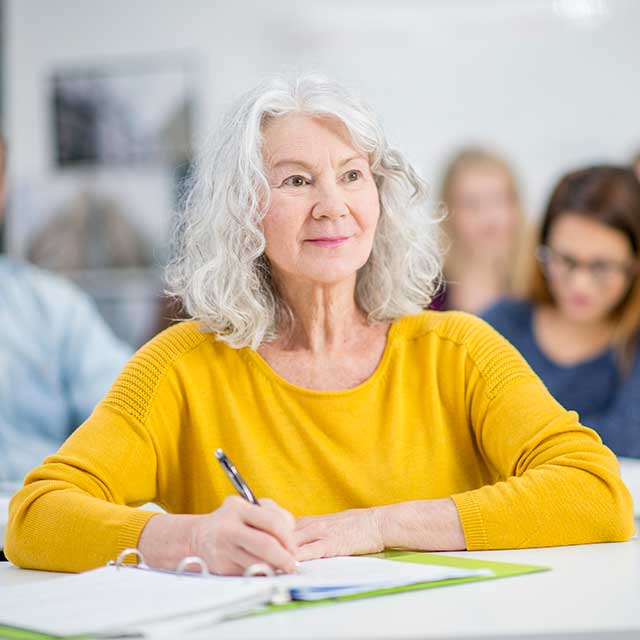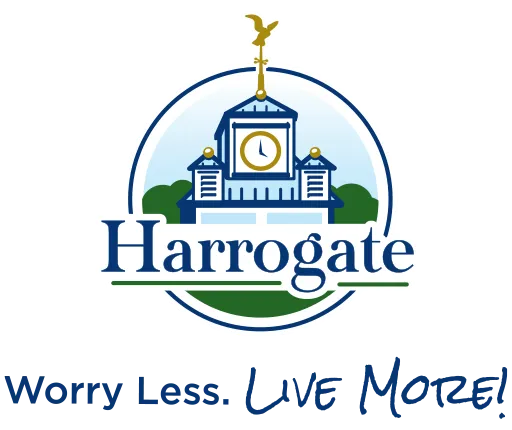
Lifelong Learning has lifelong benefits.
“Anyone who stops learning is old, whether at 20 or 80. Anyone who keeps learning stays young.”
– Henry Ford, business magnate
Being curious and wanting to learn about the world around us is an important part of being human. But does learning stop after you end your formal education or obtain your degree? While it may have been true at one time that graduating from high school or college signified the end of structured learning, times have changed. We’re now discovering being a lifelong learner has far-reaching health benefits. This blog will look at what lifelong learning is and how it can help benefit you.
Any age is a perfect time to try something new.
“We always may be what we might have been.”
– Adelaide Anne Procter, poet
Throughout life there are age-based milestones: At 16 we start to drive. At 18 we’re an adult. In our early 20s we start a career. 40 is often called the start of middle age. But to quote Major League Baseball hall of fame pitcher Satchel Paige: “How old would you be if you didn’t know how old you are?”
Today’s seniors are dismissing the idea of what being a certain age means and instead asking, “What do I want to be now?” There are lots of inspiring seniors trying something new after retirement age. Here are just a few of the more famous examples:
- Laura Ingalls Wilder published her first “Little House on the Prairie” book at age 64.
- Colonel Sanders started KFC at age 65.
- Benjamin Franklin signed the Declaration of Independence at age 70.
- Oscar Swahn won an Olympic silver medal at age 72.
- Peter Mark Roget first published his classic Thesaurus at age 73.
- Grandma Moses started painting at age 76.
- John Glenn went to space at age 77.
There are several benefits of lifelong learning
“Aging is an issue of mind over matter. If you don’t mind, it doesn’t matter.”
– Anonymous
There’s an old adage – “Use it before you lose it” – that speaks to the idea of how staying physically and mentally active now helps you to be physically and mentally active later. Recent research shows there’s a lot of wisdom in that old saying.
Researchers have long explored different medical options to help older adults cope with aging, but staying active remains the best way to preserve health for as long as possible. However, along with physical exercise, it’s also important to remain mentally active. Being mentally active helps build up cognitive reserve, or the ability of the mind to resist damage. Whether the damage occurs due to normal aging, physical trauma or emotional trauma, how well we’re able to function often depends on how efficiently we’re able to compensate for lost brain function.
A January 2019 report by Neurology found that while cognitive activity can’t change the biology of Alzheimer’s, learning new activities can help delay symptoms, preserving people’s quality of life. A 2014 study by the International Journal of Alzheimer’s Disease indicates that learning to play a new instrument can also help offset cognitive decline. The Association for Psychological Science discovered learning a difficult new skill in older age is associated with improved memory.
Recognizing the potential value of lifelong learning in boosting seniors’ cognitive reserve, the Tasmanian Healthy Brains Project (THBP) was launched in 2011. A new article published in the journal Neuropsychology presents some of the most recent THBP findings. All participants completed a series of tests to measure cognitive reserve, dementia symptoms, general well-being and physical health.
Results showed that education does seem to have a positive effect on cognitive reserve over time. Participants who recently completed a minimum of 12 months of part-time or full-time education were compared to participants who weren’t involved in any formal education over the same time period. 92.5% of the education participants showed a significant increase in cognitive reserve, while the majority of the control group showed little real increase.
Lifelong learning happens every day.
“There is nothing more notable in Socrates than that he found time, when he was an old man, to learn music and dancing, and thought it time well spent.”
― Michel de Montaigne, philosopher
Although there is a strong genetic component to cognitive reserve, research has shown that lifestyle factors can also boost the brain’s natural resilience. This includes being exposed to an engaging lifestyle with a variety of physical, mental and social activities.
At Harrogate in Lakewood, NJ, we offer a full calendar of activities, social get togethers, educational outings across Ocean County, NJ, and lifelong learning opportunities like these:
- Chorus: Learn how to work together to create beautiful, inspiring music.
- Art class: Discover, or rediscover, how to paint, draw, or even learn a new craft.
- Stained glass class: You’ll learn how stained glass windows are made, and even create one of your own.
- Educational lectures: We feature guest speakers from across the country.
- Music with the Maestro: Join us as we explore different types of music.
- Armchair traveler: Residents highlight where they’ve traveled and offer unique information about each destination.
- Tech classes: Take advantage of ongoing opportunities to learn how to get the most out of the new technology that’s all around us.
In addition to the lifelong learning options at Harrogate, Ocean County Community College in Toms River, NJ, has a special program called Silver Edge for Senior Citizens, which allows area seniors to take courses at a reduced tuition.
To learn more about Harrogate’s lifelong learning philosophy and how it can help you live a happier and healthier life, call one of our Life Care Consultants at 866-606-0178, or use our Contact Us form.
